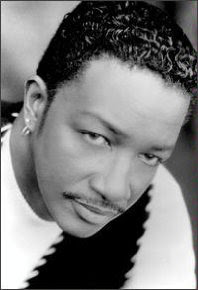 Once upon a time, back in 1969, a man named Robert Bell decided to go by the name of "Kool," and he began collaborating with some fellow musicians whom he then termed his "gang." This "Kool" and his so-called "gang" played a variety of what was then called "funk." Their songs boasted titles such as "Chocolate Buttermilk," "Raw Hamburger," "Electric Frog," "Funky Granny," and "Rated X." They didn't even have a lead singer. Who needs a lead singer when you're funky?
Once upon a time, back in 1969, a man named Robert Bell decided to go by the name of "Kool," and he began collaborating with some fellow musicians whom he then termed his "gang." This "Kool" and his so-called "gang" played a variety of what was then called "funk." Their songs boasted titles such as "Chocolate Buttermilk," "Raw Hamburger," "Electric Frog," "Funky Granny," and "Rated X." They didn't even have a lead singer. Who needs a lead singer when you're funky?Among my peers, the most well-known track done by the funk-era Kool & The Gang is probably "Jungle Boogie," thanks to its usage in the opening credits of Pulp Fiction (Side note: did you know that '70s R&B actually existed before Quentin Tarantino discovered it?). The man delivering those guttural vocal ad-libs was apparently the band's roadie.
And who could forget their contribution to the Saturday Night Fever soundtrack, the not-in-terribly-good-taste "Open Sesame"? I don't think lines like "Get on your camel and ride," or the comical usage of the "There's a place in France where the naked ladies dance" melody would go down too well in this day and age. But hey, there probably weren't too many Muslims in Studio 54, I'm guessing.
The '70s Kool & The Gang wasn't solely about high energy dance numbers, however. See "Summer Madness," their freaky, spaced-out version of a ballad.
But as every musician of the '70s quickly found out, the good times couldn't last forever. AMG gives the band's 1977 album The Force 1 1/2 stars. Lead single "Slick Superchick" peaked at #102. Suddenly, this gang wasn't so kool anymore.
Enter one James Taylor - who went by "J.T." in order to avoid confusion with the singer-songwriter of "Fire and Rain" fame.
 One could argue that this James Taylor possessed even less of an edge than the other one. But with J.T. at the helm, Kool & The Gang not only returned to prominence, but swiftly eclipsed their earlier popularity.
One could argue that this James Taylor possessed even less of an edge than the other one. But with J.T. at the helm, Kool & The Gang not only returned to prominence, but swiftly eclipsed their earlier popularity.Now, there are funk purists who adamantly claim that the '70s Kool & The Gang was the "real" Kool & The Gang, and that the version of the band that came to dominate radio in the '80s was watered down crap. These are probably the same people who think that Syd Barrett-era Pink Floyd was the "real" Pink Floyd, or that Peter Green-era Fleetwood Mac was the "real" Fleetwood Mac. These people were probably young adults in the '70s, they are probably 60 years old now, and nobody cares what they think anymore.
Yes, it's true that there might have been more "credibility" and "real emotion" in the early incarnation of Kool & The Gang. But here's how I see it. There were a lot of other bands like them. I mean, who wants to be just another good funk band? Better to be the absolute masters of a shitty genre than runners-up in a good genre, that's what I say.
And the thing is, I don't think it's quite as hard to make a good funk song as it is to make a good pop song. This coming from a songwriting genius, of course. But funk songs are like jams; at times, they're barely even songs. After a while they can get kind of samey. In my opinion, it takes more effort to write a song like "Cherish" than it does to write a song like "Jungle Boogie." The later Kool & The Gang songs have lyrics, and chord progressions. They're sturdier compositions.
But why do I have to choose, really? In the end, it's all kool with me.






